Qufu, May 15: Confucius Temple and Family Mansion; Travel and Observations
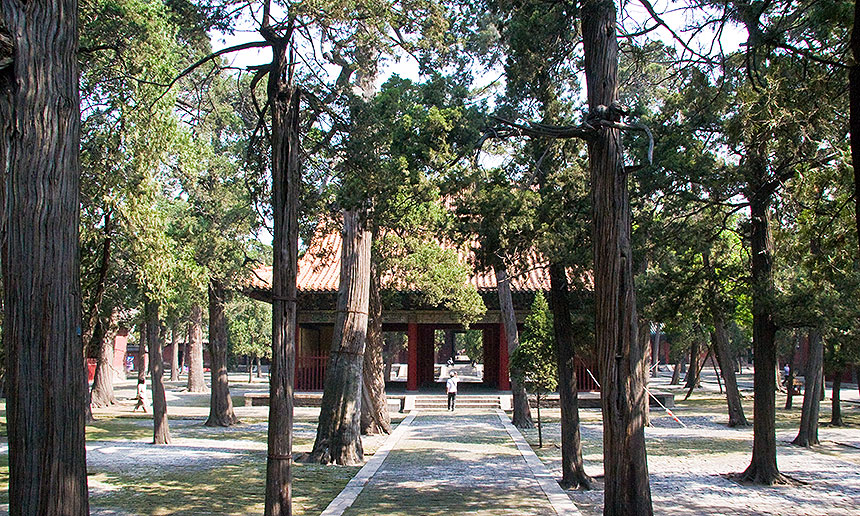
A 100 mile bus drive the previous evening brought us to Qufu, a small (pop. 160,000) but well known and much honored city in Shandong Province. Qufu is the birthplace of Confucius (551-479 BC), easily the most renowned philosopher in Chinese history. Despite being officially disrespected during the Cultural Revolution, Confucius is widely revered, and Qufu has not only his tomb and the tombs of about 100,000 of his descendants, but also an ancient temple on the site of his birth, and the adjacent family mansion of his descendants (whose surname is Kong). We started this day by touring the temple (a Chinese historical building complex second in size only to the Forbidden City).
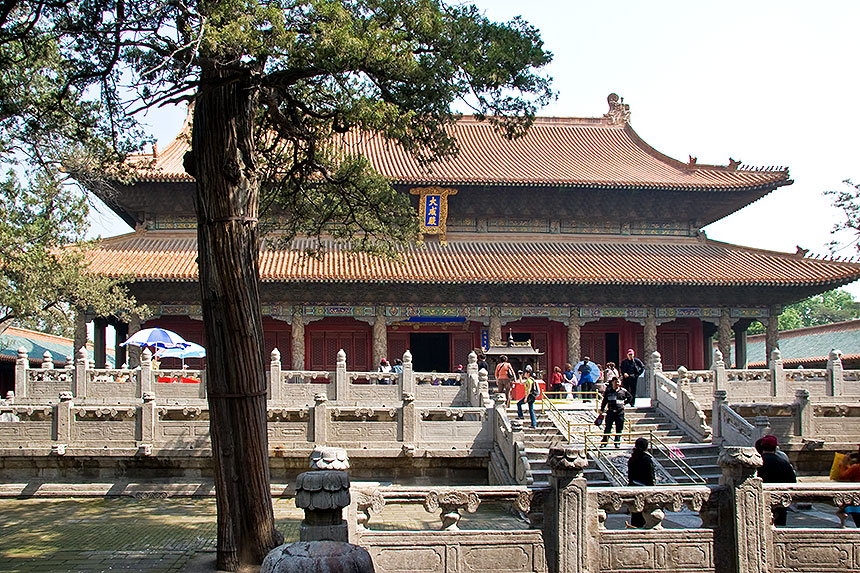
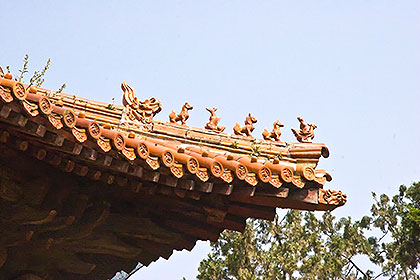
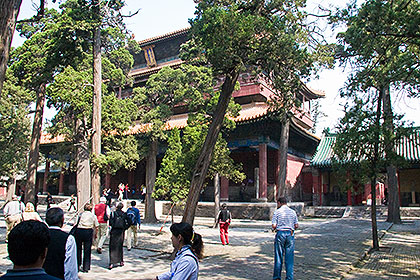
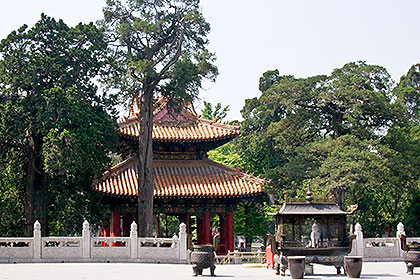
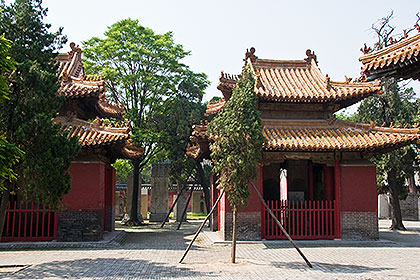
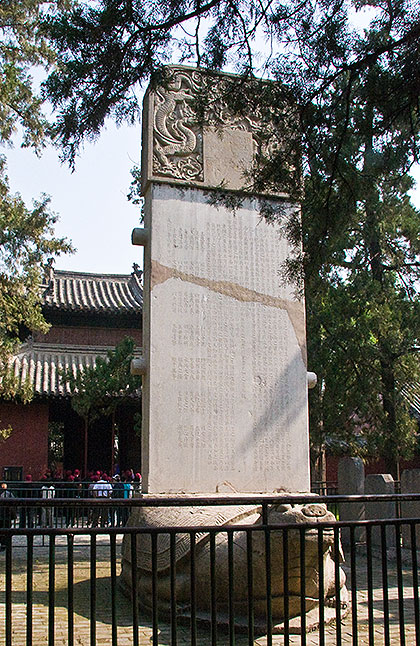
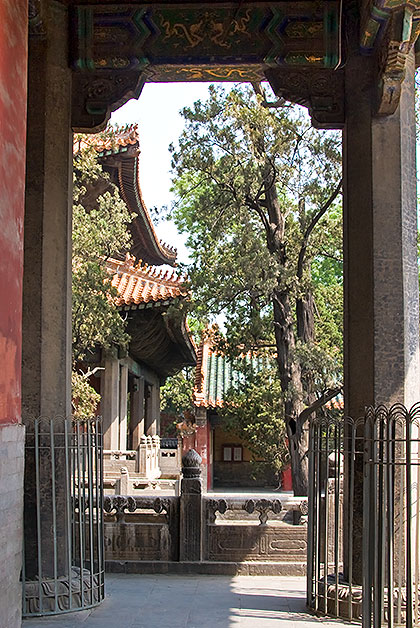
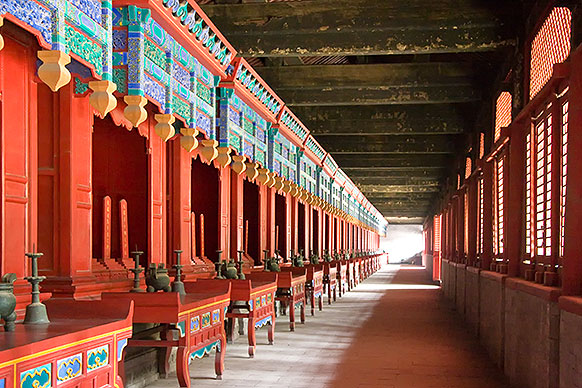
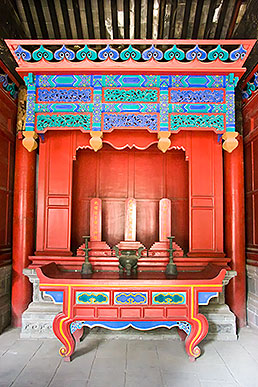
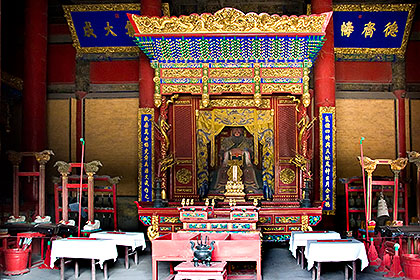
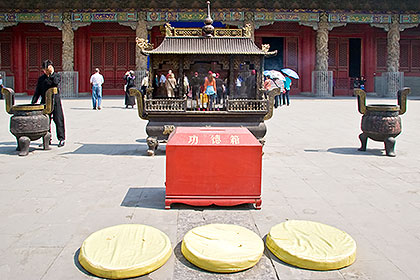
Confucius Family Mansion
We continued to the Confucius Family (actually Kong Family) Mansion, adjacent to the temple, where the descendants of Confucius have lived for centuries (the first mansion was built here in 1038). The wealthy and politically powerful family historically tended the temple and conducted religious ceremonies and rituals at festival times. Some of the ceremonial objects are shown below, as we passed by them on the way to the rest of the mansion property.
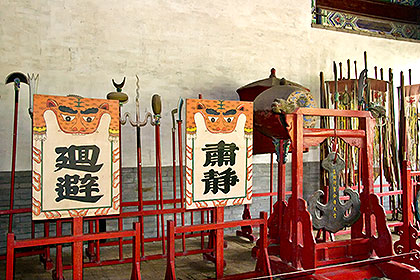
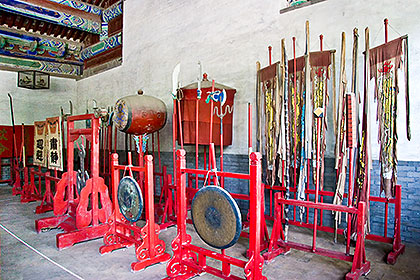
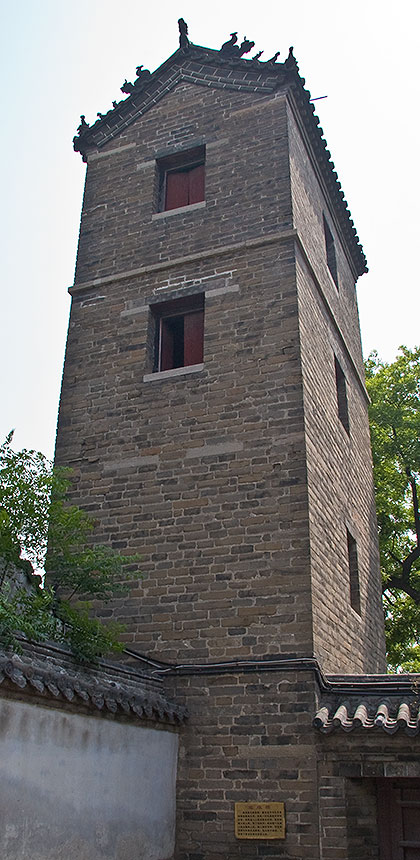
Tower of Refuge
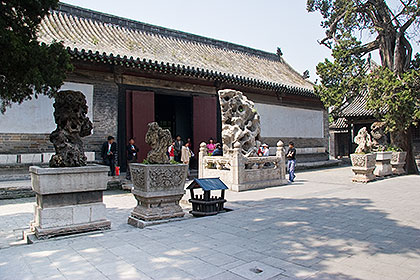
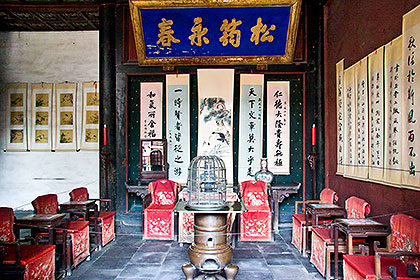
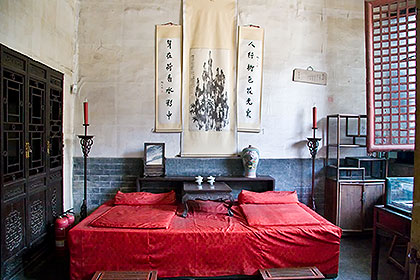
Qufu to Xi'an: Travel and Observations
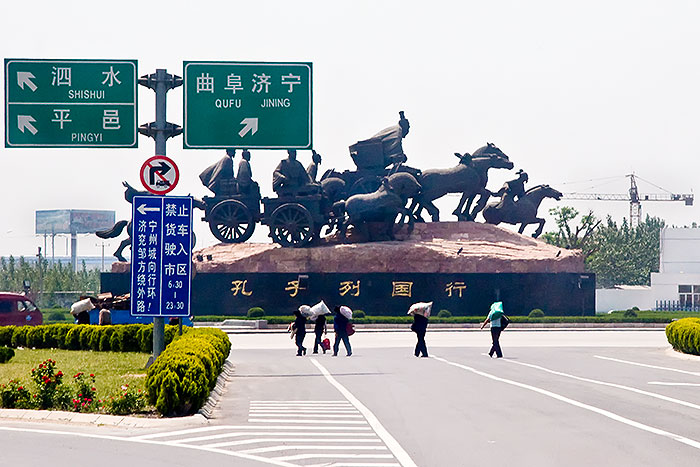
Leaving Qufu on the way to Jinan for our flight to Xi’an, we saw this enormous sculpture depicting Confucius making his way from kingdom to kingdom in the Spring and Autumn Period, trying to get rulers to embrace his principles of virtue and good governance (finding few takers at the time).
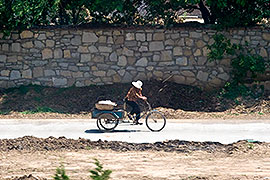
Tricycle, near highway
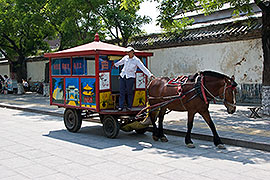
Bus, Qufu
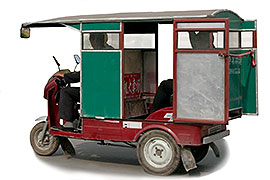
Taxi, Linyi
China's transportation needs are still met with a mix of human powered, animal powered, and motor powered vehicles. In the cities, though, we saw mainly cars, trucks, and motor buses. Beijing made the transition from mostly bicycles to mostly automobiles within the last two years.
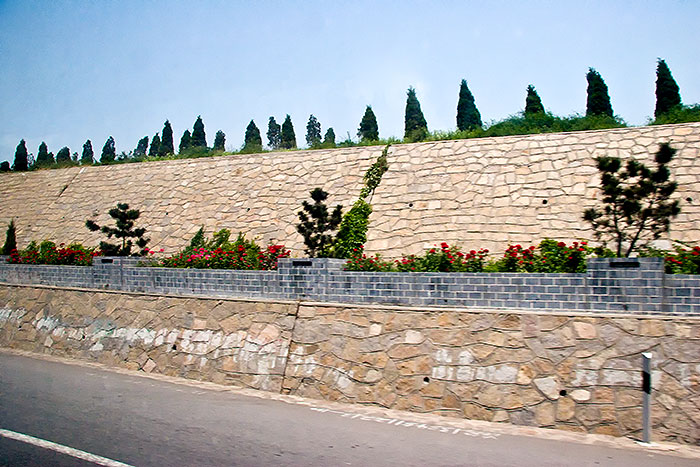
On this and other occasions when we were being driven on inter-city highways, we were impressed by the elaborate and beautiful highway landscaping, applied mile after mile even in rural countryside. The highways themselves were also well built and well maintained.
After a bus drive from Qufu, we flew from Jinan’s airport to Xi’an, the present capital of Shaanxi Province. Xi’an served as capital to 11 ancient Chinese dynasties over 4000 years, before a Ming emperor (Yongle) moved his capital to Beijing early in the fifteenth century. Xi’an’s metropolitan area population is presently about six million, with traffic to prove it. Our hotel, which welcomed us warmly, was centrally located within the old city walls though, and we could easily walk from it to many interesting places. Several of us felt that Xi’an was the most interesting city we visited on this tour.
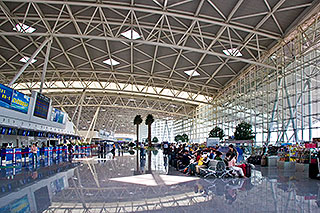
Terminal at Jinan Airport
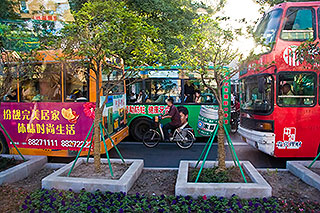
Busy Street (Nanda Jie) in Xi'an
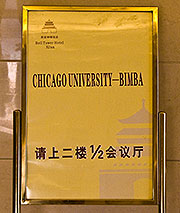
Xi'an Hotel Welcome